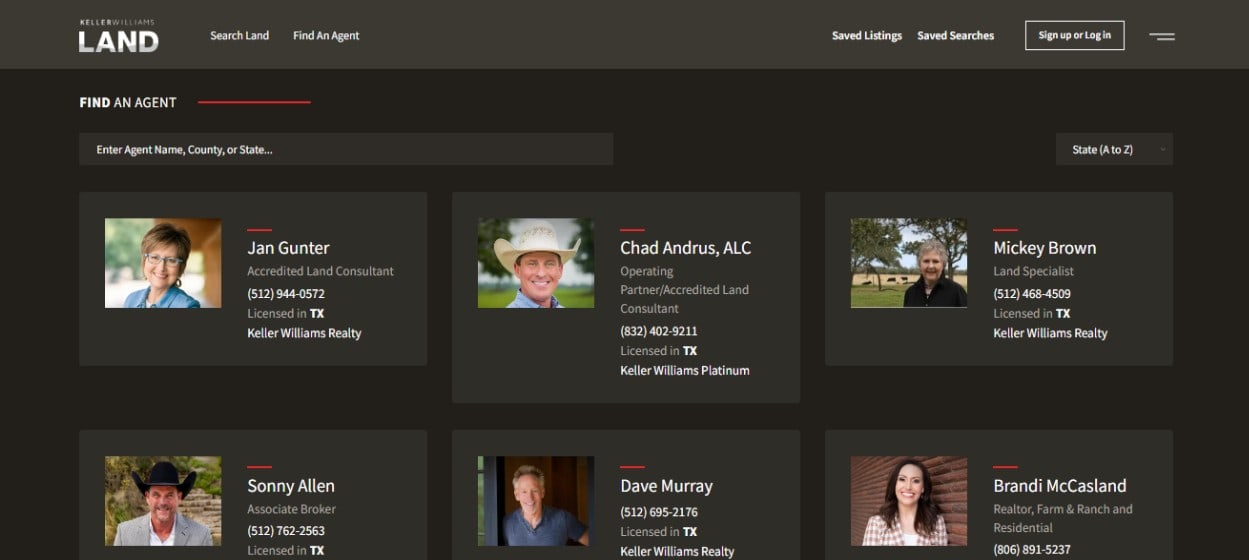Selling land is a major decision. Whether you’re passing down a family legacy or maximizing an investment, understanding the process is key to achieving your best outcome. Working with a local land expert ensures you have the right guidance to navigate market conditions, identify potential buyers, and position your property for a successful sale. This guide on how to sell land walks you through everything you need to know—from market analysis and pricing to navigating negotiations and working with professionals.
Understanding the Land Real Estate Market Before Selling Land
When selling land, understanding the current market landscape is key to setting the right price and attracting the right buyers. Several factors determine your Land’s market price, from property features and location to potential uses and competition in the market.
Before setting a price, it’s important to understand what influences land value. Several key factors impact market price, from property features to location and buyer demand.
What Factors Determine Your Land’s Market Price?
The market price of land is influenced by multiple elements, including:
- Recent Sales & Market Comparisons: Evaluating recent sales of similar properties provides insight into pricing trends and what buyers are willing to pay.
- Land Attributes: Water sources, tree cover, soil quality, and road access all impact market price. Easements or floodplains may present challenges that affect pricing.
- Improvements & Infrastructure: Land with barns, fencing, irrigation systems, or a home on the property will be valued differently than raw land. A newer barn with a concrete slab and electricity, for example, adds more to the market price than an older, unmaintained structure.
- Accessibility & Location: Properties on paved roads with easy access to medical facilities, shopping, and major highways may be more desirable than those on remote gravel roads.
- Highest & Best Use: A property’s most valuable use can vary—some land is prime for continued agricultural production, while other land may be in the path of future development.
What Will Buyers Do With Your Property?
Different types of buyers will be interested in your land depending on its location and features:
- Farmers & Ranchers looking for land to expand operations.
- Investors purchasing land for long-term appreciation. In states like Texas, where most land is privately owned, many buyers see land as a valuable asset to hold.
- Developers seeking property in areas with growth potential. Land previously used for farming or ranching could be ripe for residential or commercial development.
- Recreational Buyers searching for land for hunting, fishing, or a rural retreat. Some buyers seek a mix of recreational and agricultural use, such as ranching and hunting.
- Homesteaders looking for a few acres where they can build a house or land to establish a self-sufficient lifestyle, often prioritizing acreage for farming, livestock, and sustainable living.
A knowledgeable real estate professional, such as a KW Land® member, can help sellers determine the most likely buyers and position the property effectively.
While understanding buyer interest is crucial, it’s equally important to assess how external factors—such as nearby development—could impact your property’s market price and future potential.
What If Development Is Expanding Near Your Property?
If development is approaching your property, rezoning or land use changes could significantly impact its market price. Sellers should consider:
- Zoning Regulations & Rezoning Potential: Understanding current zoning and the possibility of future rezoning is key for attracting developers.
- Utility Access & Infrastructure: Water availability, electricity, sewer or septic systems, and road access all influence a property’s development potential.
- Conservation & Land Protection: Some sellers choose to protect their land from dense development by placing conservation easements or deed restrictions on the property. For example, a seller could restrict a 100-acre property to only be split into four parcels to maintain its rural character, or could specify that homes must be site built. Some sellers seek conservation easements to preserve and protect the land for the future.
Sellers have options—whether they want to prepare land for future development or preserve it for future generations. Consulting with a land specialist ensures you make informed decisions based on your goals and market trends.
Navigating a Land Sale with Multiple Family Members
Selling land that has been passed down through generations comes with unique challenges, especially when multiple family members are involved. Each person may have different financial situations, life experiences, and perspectives on how to sell the property. Some may prioritize maximizing profit, while others may be more focused on preserving the property’s legacy.
Working with an experienced real estate agent who understands these dynamics is essential. A knowledgeable agent can help facilitate discussions, mediate differences, and ensure that all parties feel heard throughout the negotiation process. By guiding the family through each step, the right agent can help create a smoother experience and lead to a successful sale that aligns with everyone’s best interests.
Financial Considerations When Selling Land
Selling property involves much more than agreeing on a sale price. There are several financial factors that can affect the outcome of your sale, and understanding these ahead of time can help ensure a smoother process.
Retaining or Conveying Mineral and Water Rights
One of the first financial decisions to consider is whether to retain or transfer mineral and water rights. Mineral rights refer to ownership of subsurface resources such as oil, gas, and minerals, while water rights govern the owner’s groundwater rights. . Both types of rights can significantly impact your land’s market value and will influence the pool of potential buyers.
For example, buyers with interest in resource extraction or development may be more likely to pursue property where the mineral rights are included. As water becomes more scarce, water rights are becoming an increasingly important consideration for land sales. The decision to keep or convey these rights can be a critical negotiating factor. It’s important to consult with a mineral rights and water rights attorney to fully understand how your decision will affect both the sale and potential buyers.
Costs to Prepare for When Selling Land
There are several costs to consider during the selling process, beyond just the sale price. These costs can vary, but it’s helpful to know what to expect.
- Agent Commission: The commission paid to your listing agent is negotiable. Be sure to have a clear conversation with your agent to understand their commission structure and what value they bring as a result.
- Survey Costs: If a new survey is required for the property, this is typically a seller expense, though it can be negotiated. Be prepared for the possibility that a new survey may be required.
- Title Policy: While the seller often covers the cost of the title policy, this can also be negotiated. Ensure that you understand whether this will be your responsibility.
- Legal Fees: Depending on the complexity of the sale, you may need to hire an attorney to handle legal paperwork or provide guidance on specific issues.
- Property Preparation: Finally, preparing the property for sale is crucial. If the land has overgrown areas, trails that need clearing, or other maintenance issues, addressing these beforehand can improve the property’s appeal and raise its value.
Tax Implications and Capital Gains
If you’re selling at a significant profit, it’s important to be aware of potential capital gains tax. However, there are strategies available to minimize or defer these taxes, such as a 1031 Exchange, which allows you to reinvest the proceeds into another property while deferring capital gains taxes. Working with an agent affiliated with KW Land® can provide guidance and direct you to a 1031 Exchange specialist who can walk you through the process and provide guidance on how to maximize its benefits.

Who Do You Need on Your Team to Sell Land?
To navigate the complexities of land sales, it’s essential to have the right professionals on your team. Below are key players who will help ensure a successful transaction.
Do You Need a Land Specialist?
When selling land, working with an agent who specializes in land sales is crucial. Land transactions are different from residential sales, requiring specialized knowledge of zoning, property use, and market factors that can influence the sale. A real estate agent with experience in selling land will understand these nuances and help guide the process from start to finish.
For the highest level of expertise, consider working with an Accredited Land Consultant (ALC). ALCs have completed rigorous training and have demonstrated exceptional knowledge and success in land transactions. When combined with the extensive network and resources of a KW Land® member, sellers gain access to professionals who understand land values, buyer trends, and the intricacies of rural real estate.
Should You Hire an Attorney for the Sale?
While your real estate agent handles much of the transaction, there are situations where legal guidance may be necessary. For high-value land, or if there are any complex legal aspects of the sale, you should always consider hiring an attorney. Real estate agents are not attorneys and cannot provide legal advice.
An attorney can help ensure that the sale proceeds smoothly, and if there are any legal complexities—such as mineral rights, easements, or land use restrictions—they will provide the necessary expertise. Understanding when to bring in an attorney can help avoid potential legal pitfalls that might arise during the sale.
The Role of a Title Company in Land Sales
A title company plays a crucial role in ensuring the closing process goes smoothly. Title companies perform a title search to uncover any issues or complications tied to the property, such as easements, restrictions, prior sales, and mineral and water rights. This preemptive research allows you to address any potential problems before the property is listed for sale.
For example, there was a case where a title commitment for a 10-acre tract of land revealed a cemetery on the property – but we knew there wasn’t one there!. The cemetery, which was located a mile away on the original (much larger) tract, had not been removed from the title policy when the land was subdivided. In this case because we caught this error, the cemetery was removed from this title policy as should have happened years earlier.
Title companies also hold earnest money in escrow and ensure that all documents are in order before closing. They coordinate with lenders, prepare deeds, and follow the terms of the contract to make sure everything is in place for a smooth sale. It’s important to select a title company that has experience with rural properties and understands the intricacies involved.
What to Expect in the Land Selling Process
Selling land involves multiple steps, from preparing the property for sale to closing the deal. Understanding the process can help sellers set realistic expectations and avoid potential roadblocks.
Step-by-Step Guide on How to Sell Land
As noted earlier, one of the first and most important steps in selling land is pricing it correctly. Setting a price that aligns with the current market is crucial, as overpricing can cause the property to sit for an extended period. Market conditions, whether it’s a buyer’s or seller’s market, will also influence how long the property remains listed. An agent affiliated with KW Land® can provide a market analysis to help determine a competitive price and position the property effectively.
Before listing, sellers should take the necessary steps to prepare their land for sale. Completing any recommended improvements, staging the property, and ensuring it is well-maintained can enhance its appeal to buyers. Professional photography and marketing materials should be arranged, and sellers will need to decide whether to place signage on the property. Once listed, the property will be marketed across various platforms, and showings will be scheduled. As offers come in, sellers will work with their agent to review and negotiate terms. It’s essential to consider all aspects of an offer, including contingencies, financing, and the proposed closing timeline. Once an agreement is reached and the contract is signed, the seller will need to prepare and submit all required documents to the title company. Closing is the final step, where all paperwork is completed, and the sale is finalized, allowing the seller to collect payment for their property.
What Happens After Accepting an Offer?
After an offer is accepted, the buyer typically enters a due diligence period, which may include inspections, financing approvals, and final preparations for closing. Property inspections are often conducted to assess structures, utilities, and land conditions. If major issues arise—such as problems with the roof, plumbing, foundation, or electrical systems—the buyer may request repairs or negotiate a price reduction. Pre-inspections can help sellers identify and address potential concerns ahead of time, making the process smoother.
The buyer’s ability to secure financing is another critical factor in the closing process. An agent affiliated with KW Land® will vet the buyer’s prequalification letter or proof of funds to confirm they can proceed with the purchase. Financing delays can happen, so maintaining open communication and ensuring the buyer is well-prepared can help avoid unnecessary setbacks. The timeline from offer acceptance to closing varies based on inspections, financing approvals, and any contingencies outlined in the contract.
Potential Roadblocks in Selling Land & How to Overcome Them
Selling land can present unexpected challenges, but proper preparation can help minimize disruptions. One common issue is title disputes, which can delay or prevent a sale if ownership claims or legal complications arise. Opening title early in the process allows sellers to identify and resolve these challenges before they become major roadblocks. Financing delays are another possibility, as buyers may face hurdles in securing loans. Ensuring buyers are prequalified and maintaining flexibility with closing timelines can help address this.
Negotiation hurdles may also arise, particularly if inspections reveal significant issues. Buyers may request price reductions, extended closing dates, or repairs before finalizing the purchase. Sellers should have a clear understanding of their priorities and determine in advance how flexible they are willing to be in negotiations. By working closely with a KW Land® member, sellers can navigate these challenges, streamline the sales process, and close with confidence.

Final Thoughts: Making the Most of Your Land Sale
Selling land can be complex, but working with a real estate professional experienced in land sales ensures you’re well-supported. A local land expert offers valuable guidance on pricing, marketing, and timing, helping you avoid common pitfalls. They understand the market and know how to position your property to attract the right buyers.
If you’re thinking about selling or ready to get started today, connect with a KW Land® member to ensure a smooth and successful sale. With the right professional by your side, you can confidently navigate the selling process and achieve your goals.
Looking for land for sale? Check out this listing Cameron, Texas https://kwland.com/property/elm-creek-estate-in-cameron-milam-texas/45420



